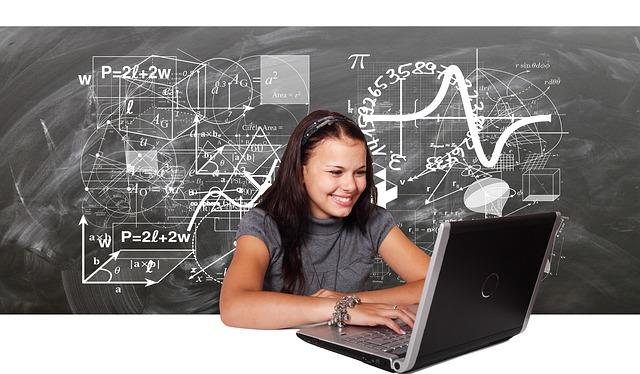Understanding the intricate theories and laws of physics shouldn't be a daunting task when explained properly. A skilled and knowledgeable educator should have the ability to explain the principles of universal gravitation, motion, thermodynamics, and the conservation of mass and energy to students of any level.
However, even with the guidance of dedicated teachers or physics math tutors, physics remains one of the most challenging subjects to grasp. This is why you will find that students from diverse cultural backgrounds around the world often approach the study of physics with apprehension. This prevailing perception of physics being difficult often stems from the fact that some students may not have acquired a solid foundation in mathematics before delving into physics at the secondary or university level.
In recent years, scientific disciplines such as biology, chemistry, and physics have witnessed a surge in popularity. Consequently, students and parents alike have actively sought out supplementary resources to aid in their studies.

Studying Physics at University

Even though the academic discipline of physics may be a challenge, it still sparks the interest of students all over South Africa.
If you are an aspiring physicist, you will be delighted to find out that when it comes to how to study physics easily, the foundations can be gained before you head to university.
Pre University Level
In the South African high school curriculum, the subject of Physical Science combines both physics and chemistry, allowing students to learn about the fundamental principles and laws of physics as well as the basics of chemistry. It is a core subject in the science stream of the high school curriculum and is usually taken by students who have an interest in pursuing science-related fields or further studies in physics or engineering.
At the matric level, Physical Science covers a range of topics including mechanics, waves, sound and light, electricity and magnetism, chemical change and matters and material.
These topics provide a good foundation in both physics and chemistry which will help you to develop a basic understanding of the fundamental principles that govern the physical world.
Of course, the best books to learn physics are the prescribed textbooks you receive. But if you want to know how to study physics for exam season, there are plenty of other books out there to help you too. If you are stuck in a particular area for example, you could look at physics books for beginners as this might shed light on an area in which you got lost.

How to Learn Physical Science After School:University Level
To have the opportunity of studying physics at university, there are specific qualifying criteria that you will you need to meet.
To study physics at a university in South Africa, the qualifying criteria typically include obtaining a National Senior Certificate (NSC) or an equivalent qualification with a certain minimum level of achievement in specific subjects. For physics, mathematics is often a prerequisite, and a minimum pass mark in mathematics at the NSC level is usually required. Additionally, some universities may have specific admission requirements, such as a minimum overall NSC score or additional subjects that need to be passed. It is important to check the specific entry requirements of the universities or programmes that you are interested in to ensure you meet the criteria for studying physics at the tertiary level in South Africa.
Revision Books: How to Study Physics for Exam Time

As mentioned physics can be studied at high school or university, however in recent years, many individuals have opted to seek how to study physics easily through self-study. It is possible to acquire the basics with the right physics books for beginners. Here are a few recommended titles if you want to find out how to learn physical science on your own.
- Physics for Dummies: This book, which caters to both high school and university students simplifies physics concepts entertainingly and straightforwardly. It emphasises that one doesn't need to be Einstein to grasp the fundamentals of physics. It also incorporates the latest teaching techniques, examples, and explanations to help you know how to study physics easily.
- The Feynman Lectures on Physics: This book, written by Richard Feynman, a renowned physicist, is considered one of the best books to learn physics. It covers everything from basic principles to advanced topics like general relativity and quantum mechanics and caters to learners of all levels. Originally published in 1964, it has sold millions of copies and is still highly regarded.
- Fundamentals of Physics: This textbook, authored by David Halliday, equips instructors with effective tools to teach students how to study physics easily. It applies fundamental concepts, solves problems, and teaches the reader how to reason scientifically. The 10th edition builds on previous versions and includes new video illustrations to enhance the learning experience.
- What If? Serious Scientific Answers to Absurd Hypothetical Questions: As one of the best books to learn physics, Randall Munroe, the creator of xkcd comics, tackles bizarre questions from readers using computer simulations and clear, humorous explanations. This book blends science, technology, and language to provide entertaining and informative answers.
These examples are excellent choices if you are looking for physics books for beginners or want to review the fundamentals of physics.
Useful Tips for How to Study Physics Easily

Success in academic disciplines, particularly in physics, requires hard work and determination as it revolves around problem-solving rather than mere memorisation. While understanding concepts may come easily to many students, applying them to solve problems can still be challenging. Studying physics is valuable and beneficial for the future, but remember that success can take time. If you are battling to know how to study physics easily then these tips could help:
- Engage with the Material: Despite teenage scepticism, teachers are there to support your success and help you to have a bright future. So when they say reading all study materials, including textbooks, worksheets, and supplementary notes is crucial it’s because it is how to learn physical science correctly. If the provided textbook isn't appealing check out our list of best books to learn physics in this article.
- Be an Active Participant: Don't hesitate to ask questions during your physics lesson. Actively engaging and seeking clarification is critical when it comes to how to study physics for exam preparation. Discuss physics with peers, and while reviewing textbooks, and other physics books for beginners, or completing homework, consider potential questions to enhance overall understanding. If the fear of embarrassment arises, simply jot down the questions and ask your teacher after class. Don’t forget that being an active learner will include taking the time to find useful online resources to review physics.
- Master Problem-Solving: Physics sets itself apart from other subjects by emphasising problem-solving over rote memorisation. While students may grasp basic physics concepts easily, tackling problems poses a distinct challenge. The only path to becoming proficient in physics problem-solving is through practice. Devoting time during lunch breaks or after school in the library to work through typical physics problems is the key to success. If the library isn't your preferred study environment, find a quiet and conducive space that suits your learning style. Also, don’t forget that many highly recommended websites offer to practice.
- Maintain Daily Study Habits: Consistently studying and reviewing the core concepts of physics every day is important for achieving favourable results in exams. It may require prioritising study time over extracurricular activities or favourite shows. Students who struggle with grasping physics principles often excel in subjects like language arts or history, but by dedicating more time to revising physics, educational success across all disciplines is possible. Who knows? Perhaps Cambridge or Oxford beckons! Physics is a fundamental academic discipline and it can seem overwhelming that it offers insights into the workings of the universe. Simplify the process of reviewing physics by seeking tips from experienced individuals and finding a physics revision book tailored to your specific learning needs.
If you want to know how to study physics for exam preparation, then look at learning physics using helpful resources outside of your prescribed course reading. Physical Science should be a gratifying subject, so why not remove those mental blocks with the help of the right maths and physics tutor and begin enjoying the extraordinary subject of physics?
Summarise with AI















